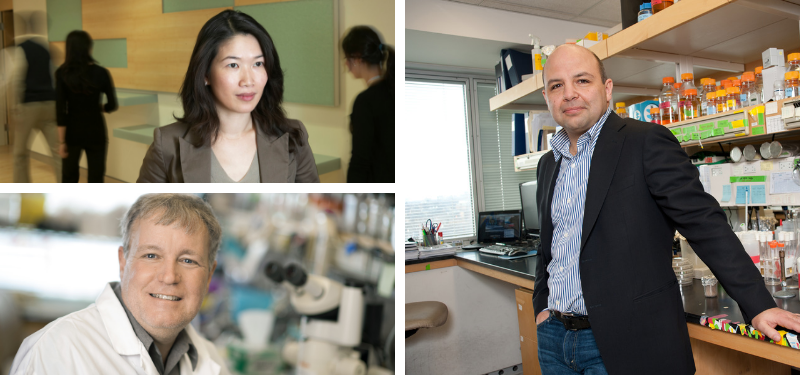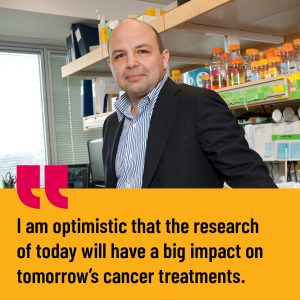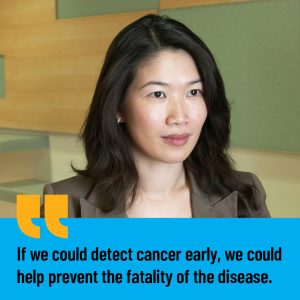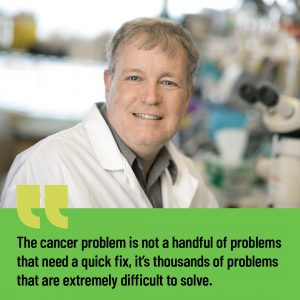
April is Cancer Awareness Month, which means news feeds will be full of inspiring and fascinating stories about cancer care and research. When progress is made, it is important that it be anchored in strong science based on evidence that can withstand the rigours of established scientific inquiry.
Several months ago, a scandalous claim of curing cancer within a year captured international headlines. It was quickly and rightly dismissed as an attempt at garnering financial support for the research, but this claim damaged the credibility of us scientists, who spend our days searching for better cancer treatments. More importantly, it creates false hope in people living with cancer today.
Cancer is not just one disease and is driven by processes fundamental to normal life. Our bodies must renew our tissues and this requires our cells to divide and to faithfully copy the two metres of DNA in every cell. While incredibly precise, these cell systems make rare errors that become mutations that begin the cancer process.
However, real progress is being made on many fronts. I believe we are closer than ever to one day being able to treat this horrible disease as a chronic condition and to achieve significant cures as well. We will learn more about reducing our risk and for cancers that do develop, we will become much better at treating and controlling the disease.
Here are a few of my inspiring colleagues at the Lunenfeld-Tanenbaum Research Institute sharing what they believe can be achieved through cancer research in their lifetimes.
Dr. Jim Woodgett, Director, Lunenfeld-Tanenbaum Research Institute

“In my lifetime, we will make the concept of “precision oncology” a reality for most patients. We will use genetic tools to determine the genetic makeup of tumours and will tailor treatment accordingly. We will monitor patients with less invasive liquid biopsy approaches and we will combine genetically tailored drugs with immunotherapy to produce lasting remission in many patients. I am optimistic that the research of today will have a big impact on tomorrow’s cancer treatments.”
Dr. Daniel Durocher, Senior Scientist, Lunenfeld-Tanenbaum Research Institute

“I’m working toward increasing our efficiency in detecting cancer. For example, establishing and implementing an algorithm that will impact how and when cancers are detected, or designing a screening tool or strategy that could have huge implications. With cancer, we often detect it too late. If we could detect cancer early, we could help prevent the fatality of the disease.”
Dr. Rayjean Hung, Senior Scientist, Lunenfeld-Tanenbaum Research Institute

“Recent advances in the cancer clinic started in basic science labs in the early 90’s. It took 25 years to get some of those original findings to the clinic, and without those fundamental discoveries, there would be no new therapies being applied to patients. We now know the cancer problem is not a handful of problems that just need a quick fix, it’s thousands of problems that are extremely difficult to solve. The use of powerful, new technologies has revealed cancer is a spectrum of diseases that are constantly changing and rapidly acquiring resistance to therapeutics. In the future, my hope is that we adapt our research funding models to better support discovery science, which will lead to more, effective therapies for cancer patients.”
Dr. Jeff Wrana, Senior Scientist, Lunenfeld-Tanenbaum Research Institute
